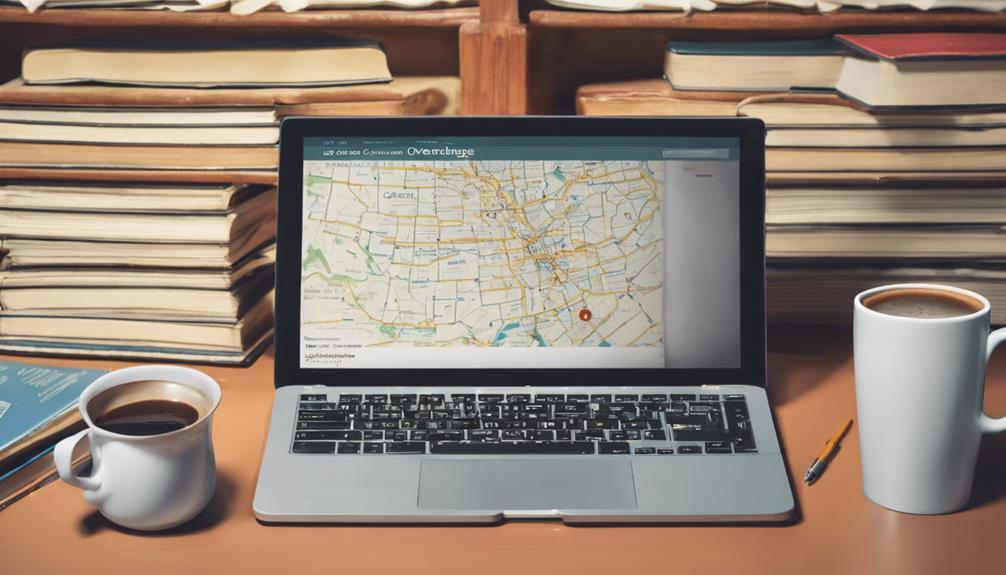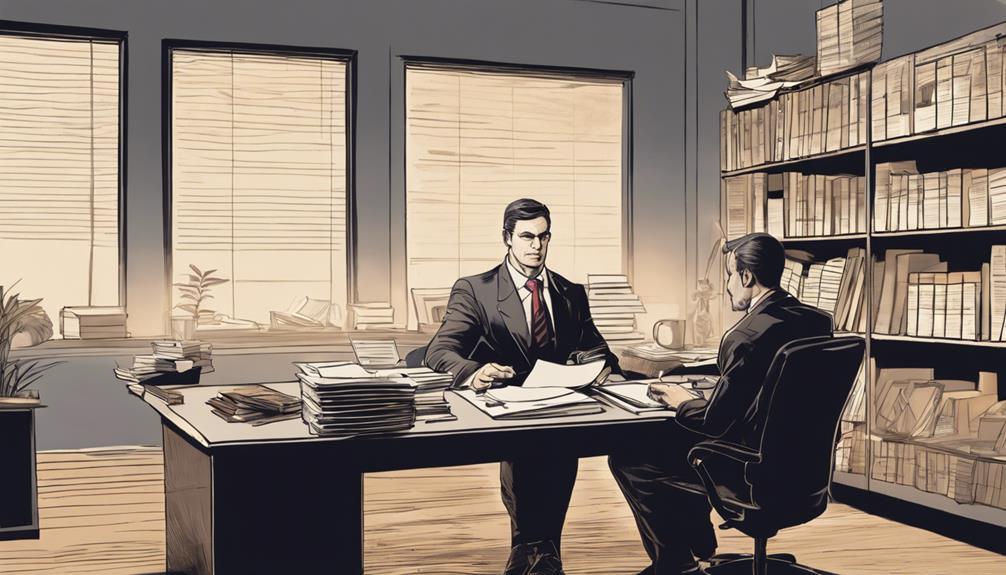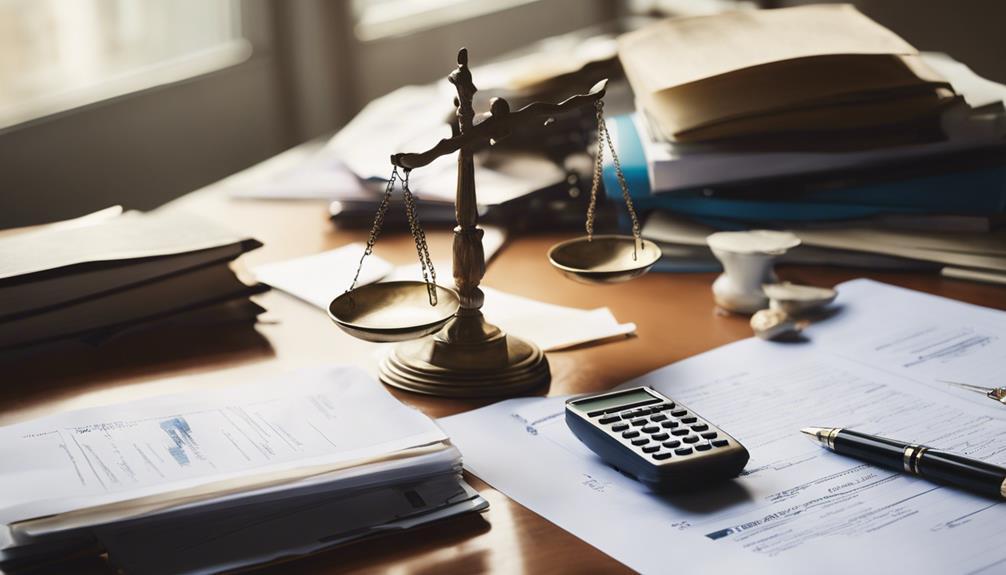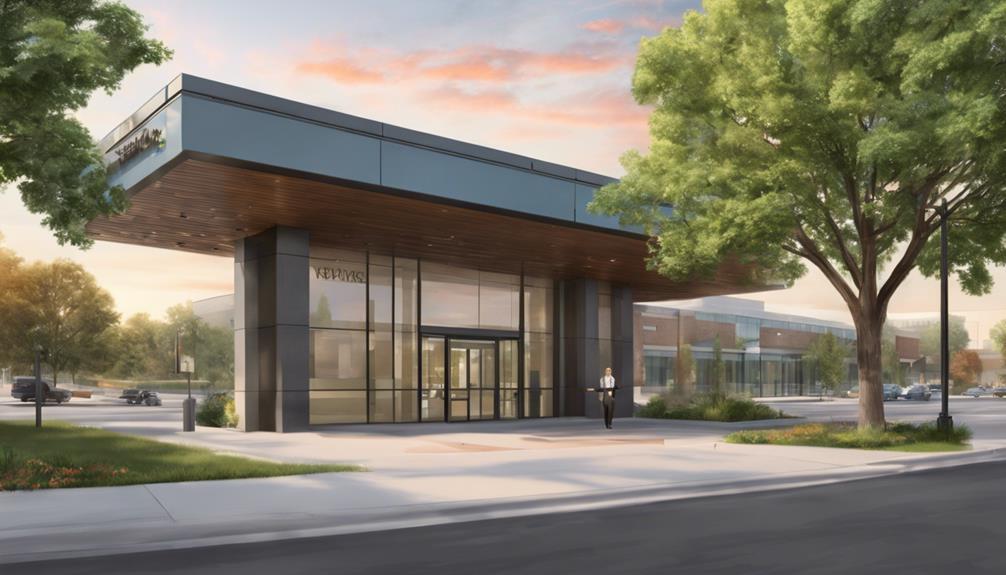When you find yourself facing a legal issue in Overland Park, KS, it's crucial to ask the right questions before selecting a lawyer. You need to pinpoint the specific nature of your problem, whether it's family law, criminal matters, or business disputes. Researching local attorneys can seem overwhelming, but understanding what to look for can simplify the process. As you prepare for consultations, consider which questions will help you gauge a lawyer's fit for your needs. The answers might reveal more than you expect, especially when it comes to establishing a successful partnership.
Understanding Your Legal Needs

When you find yourself facing legal challenges, it's crucial to understand your specific needs before seeking help. Identifying the nature of your issue is the first step. Whether it's a personal matter, a business concern, or a family dispute, knowing what you're dealing with will guide you in finding the right legal assistance.
Next, think about what you hope to achieve. Are you looking for a settlement, a court ruling, or simply advice? Defining your goals will help you articulate your needs to a lawyer. This clarity will also aid in assessing the potential costs and timeframe involved.
Consider the complexities of your situation. Some legal matters are straightforward, while others may require specialized knowledge. Understanding the level of expertise you need will save you time and frustration in your search for a lawyer.
Lastly, don't forget to evaluate your budget. Legal fees can vary significantly, so knowing your financial limits upfront will help you narrow down your options.
Types of Legal Issues
Understanding the types of legal issues you might face helps you narrow down the specific assistance you need. Legal issues can be complex, so recognizing where you stand is crucial.
One common type is family law, which includes divorce, child custody, and adoption. If you're navigating personal relationships or family matters, you'll want someone experienced in this area.
Another area is criminal law, where you might need help if you're facing charges or seeking to understand your rights during an investigation.
Contract disputes often arise in business settings, requiring legal guidance to resolve issues over agreements.
Employment law can also be a concern, especially if you're dealing with wrongful termination or workplace discrimination.
Estate planning is another significant issue, involving wills and trusts to ensure your wishes are honored after you're gone.
Lastly, personal injury claims arise from accidents or negligence, where you might seek compensation for damages.
Researching Local Attorneys

Often, finding the right attorney in Overland Park, KS, requires a bit of research to ensure you get the best representation for your specific legal needs.
Start by identifying the type of lawyer you need, whether it's for family law, criminal defense, or business matters. Once you know your focus, utilize online resources like local bar association websites or legal directories to find qualified attorneys in your area.
Check their reviews and ratings on platforms like Avvo or Google. Look for feedback that highlights their expertise and client interaction.
Don't hesitate to ask friends or family for recommendations; personal experiences can provide invaluable insights.
Next, consider their experience and qualifications. Review their educational background, years in practice, and any specialized certifications.
It's also beneficial to check if they've experience handling cases similar to yours.
Preparing for Your Consultation
Preparing for your consultation with an attorney is crucial to make the most of your time and ensure you cover all necessary topics. Start by gathering relevant documents related to your case. This could include contracts, emails, court papers, or any correspondence that might help your attorney understand the situation better.
Organizing these materials beforehand saves time and enhances clarity during your meeting.
Next, outline the key points you want to discuss. Consider your goals and any concerns you have about the legal process. Being clear about what you seek will help your attorney provide tailored advice.
Don't forget to jot down any important dates or deadlines related to your case. This information can be critical in legal matters, and having it handy shows your attorney that you're proactive.
Questions to Ask a Lawyer

Asking the right questions during your consultation can significantly impact the outcome of your case. Start by inquiring about the lawyer's experience with cases similar to yours. You'll want to know how many cases they've handled and their success rate. This helps you gauge their familiarity with your specific legal situation.
Next, ask about their approach to your case. What strategies do they plan to use? Understanding their methods can give you confidence in their ability to represent you effectively.
Don't forget to discuss fees and billing practices upfront. Clarifying how they charge—hourly, flat fee, or contingency—can help you avoid surprises later.
It's also crucial to understand the timeline. Ask how long they expect the process to take and what factors may influence that timeline.
Communication is key, so inquire how often you can expect updates and the best way to reach them.
What to Expect During Consultation
During your consultation, you can expect a thorough discussion about your legal situation and the specifics of your case. The lawyer will likely start by asking you to explain your circumstances, so be prepared to share relevant details. This is your opportunity to provide background information, including any documents or evidence that may support your claims.
As the conversation progresses, the lawyer will ask questions to better understand your goals and what you hope to achieve. They'll also outline potential legal strategies and approaches tailored to your situation.
Pay attention to how they communicate; you'll want to feel confident in their expertise and ability to represent you.
You should also expect the lawyer to explain the legal process related to your case. They'll clarify any legal terms or concepts that may be unfamiliar.
This is a great time to ask questions, ensuring you leave with a clear understanding of your options.
Evaluating Legal Fees

When you're evaluating legal fees, it's essential to understand how different pricing structures can impact your overall costs. Lawyers typically charge in various ways, including hourly rates, flat fees, and contingency fees. Knowing the differences will help you make an informed choice.
Hourly rates involve paying for the time your lawyer spends on your case. If you choose this model, ask for an estimate of the total hours involved.
Flat fees offer a set price for specific services, which can provide clarity on what you'll pay upfront. This model is often used for straightforward tasks, like drafting wills or handling divorces.
Contingency fees are common in personal injury cases, where your lawyer takes a percentage of the settlement. This can be beneficial if you're concerned about upfront costs but be sure to clarify the percentage and any additional fees.
Don't forget to inquire about any other potential costs, such as court fees or filing charges. Understanding all aspects of the fees will help you better budget for legal representation and avoid surprises down the road.
Always ask for a detailed breakdown to ensure transparency.
Importance of Communication
Evaluating legal fees is just one part of finding the right lawyer; effective communication is equally important. You want a lawyer who listens to your concerns and explains legal concepts in a way you can understand. Good communication builds trust and ensures that you're on the same page throughout your case.
When you first meet with a lawyer, pay attention to how they interact with you. Are they attentive to your questions? Do they provide clear answers? A lawyer who communicates well will help you feel more at ease and informed about your legal situation. It's crucial that you feel comfortable discussing sensitive issues, so choose someone who fosters that open dialogue.
Moreover, effective communication extends beyond initial meetings. Your lawyer should keep you updated on your case's progress and be available when you have questions. If you struggle to get a response or feel ignored, it might signal a larger problem in the attorney-client relationship.
Ultimately, clear communication can directly impact the outcome of your case. You deserve a lawyer who prioritizes transparency, so you can make informed decisions every step of the way.
Building a Long-Term Relationship

Building a long-term relationship with your lawyer can significantly benefit your legal journey. When you establish trust and familiarity, your lawyer can better understand your unique needs and goals. This connection allows them to provide more tailored legal advice and strategies, ensuring you feel supported every step of the way.
You'll find that regular communication fosters a deeper understanding of your case. As you share your concerns and objectives, your lawyer can offer insights that align with your long-term vision. This ongoing dialogue helps you anticipate potential challenges and navigate them effectively.
Moreover, a strong relationship can lead to more efficient legal processes. When your lawyer knows you well, they can make informed decisions quickly, saving you time and stress. You won't have to rehash your story every time you meet, as they'll already be familiar with your background.
Lastly, investing in this relationship can provide peace of mind. Knowing you have someone in your corner who genuinely understands your situation can be incredibly reassuring.
Conclusion
Finding the right lawyer in Overland Park, KS, can make all the difference in your legal journey. By understanding your needs, researching local attorneys, and asking the right questions during consultations, you'll set yourself up for success. Remember to evaluate fees and prioritize clear communication to build a strong relationship with your attorney. With the right support, you can navigate your legal challenges with confidence and peace of mind.

